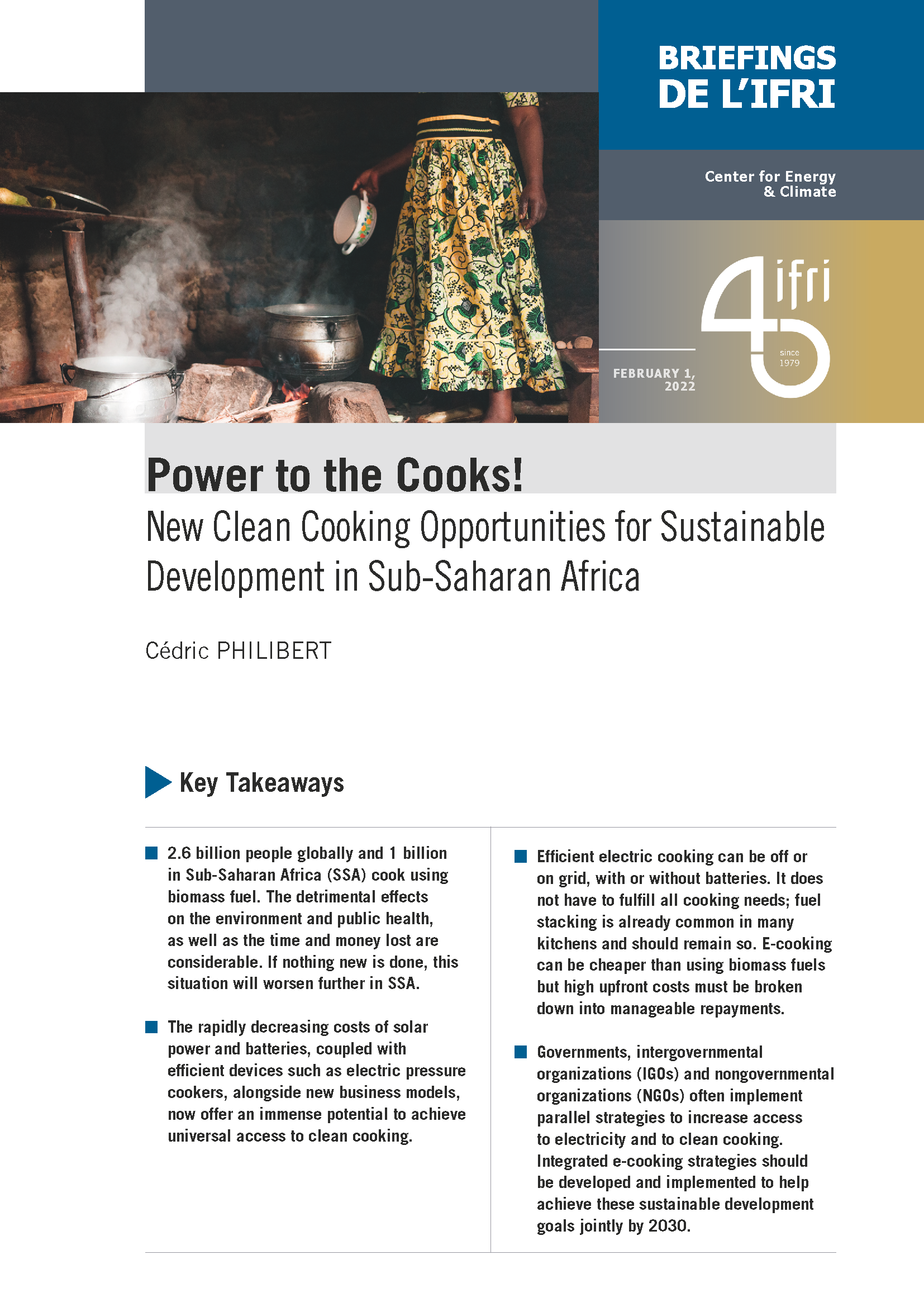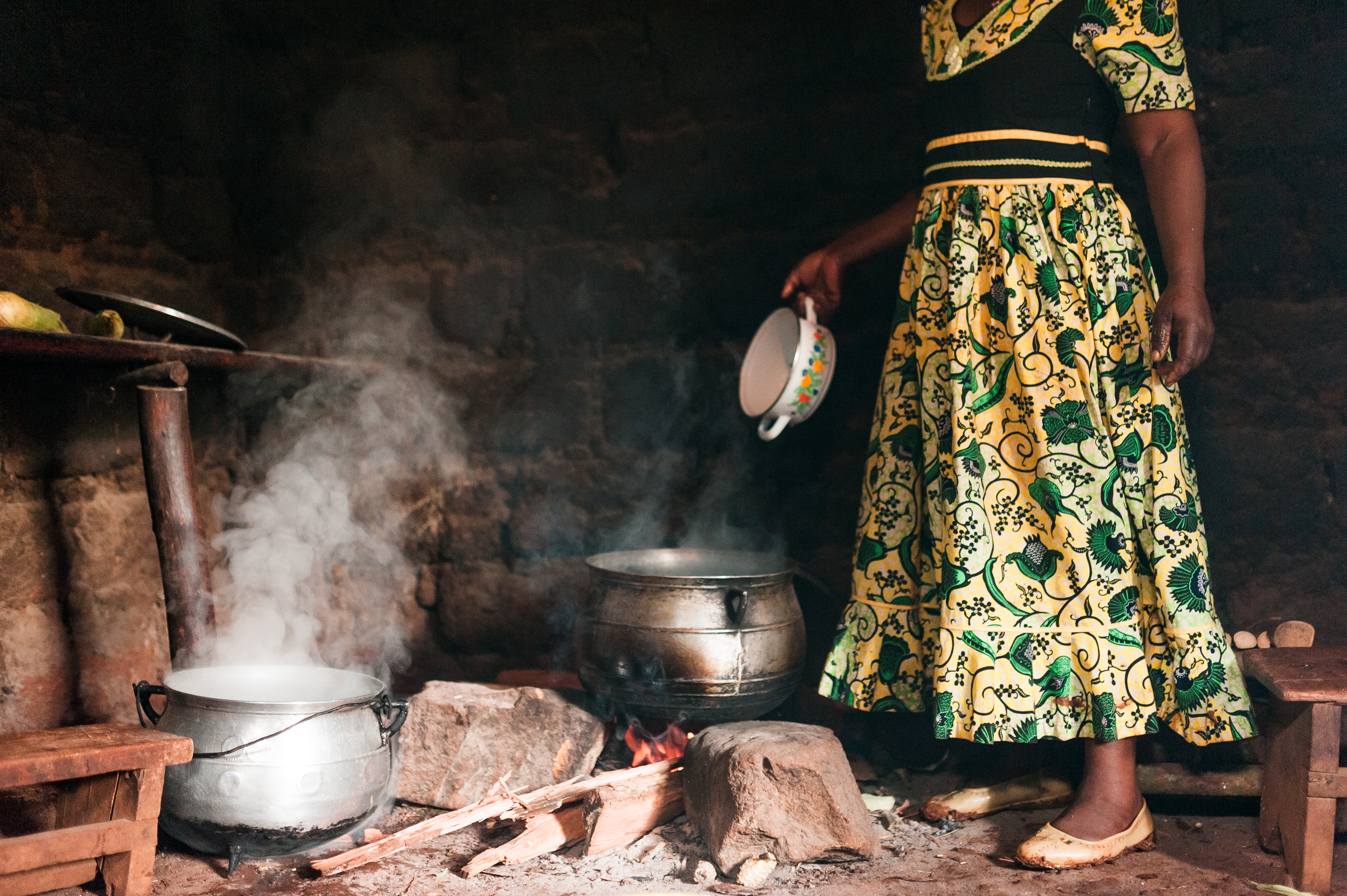Power to the Cooks! New Clean Cooking Opportunities for Sustainable Development in Sub-Saharan Africa

2.6 billion people globally and 1 billion in Sub-Saharan Africa (SSA) cook using biomass fuel. The detrimental effects on the environment and public health, as well as the time and money lost are considerable. If nothing new is done, this situation will worsen further in SSA.

• The rapidly decreasing costs of solar power and batteries, coupled with efficient devices such as electric pressure cookers, alongside new business models, now offer an immense potential to achieve universal access to clean cooking.
• Efficient electric cooking can be off or on grid, with or without batteries. It does not have to fulfill all cooking needs; fuel stacking is already common in many kitchens and should remain so. E-cooking can be cheaper than using biomass fuels, but high upfront costs must be broken down into manageable repayments.
• Governments, intergovernmental organizations (IGOs) and nongovernmental organizations (NGOs) often implement parallel strategies to increase access to electricity and to clean cooking. Integrated e-cooking strategies should be fostered and implemented to help achieve these sustainable development goals jointly by 2030.
Download the full analysis
This page contains only a summary of our work. If you would like to have access to all the information from our research on the subject, you can download the full version in PDF format.
Power to the Cooks! New Clean Cooking Opportunities for Sustainable Development in Sub-Saharan Africa






